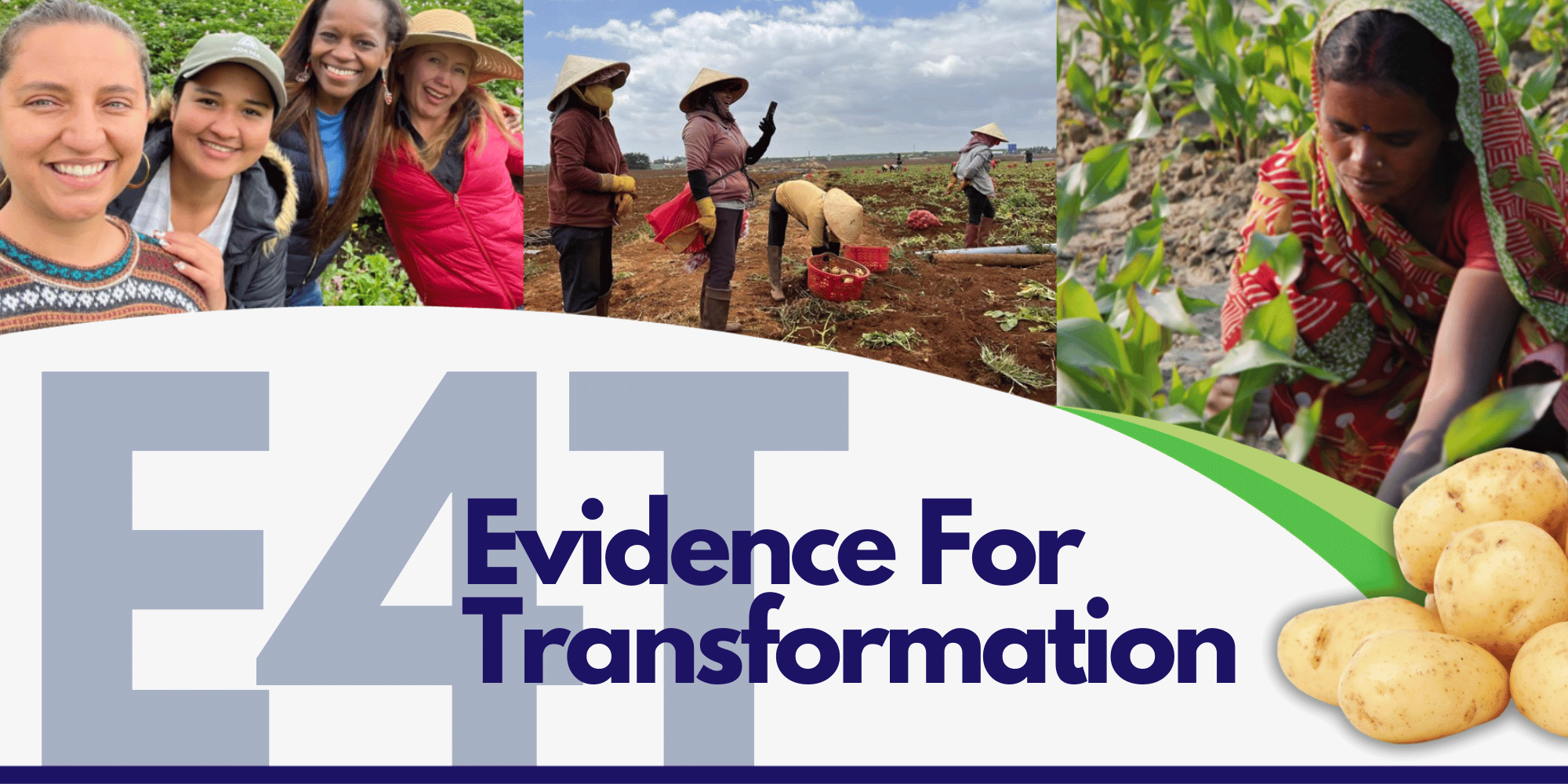In today's global sustainability landscape, the imperative of women's economic empowerment has gained significant traction. Organizations worldwide are recognizing the immense potential of empowering women to drive sustainable development, foster equitable growth, and create mutual benefits across sectors and industries. This is particularly evident in the agricultural sector, where women play a pivotal role in food production, supply chains, and rural economies.
Women make up about 43 percent of the agricultural labor force worldwide, with substantial variations across regions. In many developing countries, women contribute significantly to the production, processing, and distribution of food. In some regions like Asia and Sub-Saharan Africa, this percentage can soar to 60-70 percent of the agricultural workforce. Despite their substantial contributions, women often encounter systemic barriers such as limited access to resources, financial services (credit, savings, and insurance), training, and market opportunities. They typically earn lower incomes compared to their male counterparts and are underrepresented in decision-making processes such as farm management, input purchases, marketing strategies, and participation in agricultural cooperatives.
In addition, the disparity in land ownership – owning less than 20 percent of agricultural land globally – and access to productive resources hinders their economic empowerment, underscoring the critical need to address these challenges not only as a matter of social justice but also as a strategic imperative for businesses seeking sustainable growth and resilience in their supply chains.
A USAID-PepsiCo Partnership Centers Data and Evidence
Recognizing the urgent need for action, In June 2020, PepsiCo and USAID launched Investing in Women to Strengthen Supply Chains, a $20 million partnership that aims to make a compelling business case for women’s economic empowerment and to illustrate how elevating women in supply chains can lead to greater growth, profitability, and sustainability. This five-year partnership strategically invests in advancing gender equality and women’s empowerment in PepsiCo's agricultural supply chains while addressing critical business priorities. Implemented by Resonance across four focus countries – India, Pakistan, Peru, and Vietnam – the partnership embraces a shared-value approach that aligns business goals with social impact. At the heart of this approach is the use of Monitoring, Evaluation, and Learning (MEL) strategies and frameworks to assess progress, measure impact, and showcase the business case for investing in women's empowerment.
Leveraging MEL for Making the Business Case
Resonance specializes in the design, management, and implementation of MEL frameworks and plans for multi-stakeholder initiatives (MSIs) like the USAID-PepsiCo partnership, where public sector organizations, such as USAID, engage with the private sector to increase the impact of its development efforts. Resonance leverages its expertise and user-centric approach to MEL to develop rigorous and inclusive strategies to help clients assess and enhance the effectiveness, efficiency, and impact of MSIs. This includes navigating the distinctive goals, stakeholders, and organizational structures inherent to such initiatives.
Leading the design and management of MEL for large-scale USAID and private sector initiatives in agriculture, climate change, the environment, and digital and financial inclusion, such as the USAID and PepsiCo partnership, the $25 million CIRCLE Alliance: Catalyzing Inclusive, Resilient, and Circular Local Economies (CIRCLE), and USAID and Microsoft Global Development Alliance ($20 million), Resonance understands the unique nature and complexities of MEL for MSIs. To do it right, Resonance initiates a collaborative process to gain a thorough understanding of a private or public sector organization’s existing MEL and data management systems, key components, processes, and tools to ensure compatibility, seamless integration, and sustainability of MEL systems and processes.
This collaborative approach builds off of a client’s existing MEL structures, centers their data needs, and includes the following strategies:
- Early Stakeholder Engagement: Resonance identifies and engages all relevant stakeholders early in the process to clarify MEL expectations, needs, and concerns. This helps establish clear communication channels and develop a shared understanding of project objectives to advance the private sector’s core business interests and USAID’s development goals. Resonance then facilitates co-creation processes to develop work plans and MEL frameworks and identifies key activities and indicators that reflect clients' diverse goals and priorities.
- Tailored Metrics and KPIs: Resonance’s tailored MEL approach captures a wide spectrum of outcomes and impacts pertinent to diverse stakeholders. Considering the private sector’s focus on business outcomes, market share, customer perceptions, and satisfaction, Resonance includes stakeholder-specific Key Performance Indicators (KPIs) and benchmarks to measure the success of their investments over time and demonstrate a well-constructed business case for efficient allocation of resources. This strategy enhances the competitiveness of the private sector and its ability to navigate industry trends and foster effective communication with stakeholders regarding the business case and value of their investment.
- Adaptive Management: Recognizing the imperative for long-term sustainability and the dynamic nature of MSIs, Resonance employs an adaptive management approach to MEL, ensuring flexibility and responsiveness to changing priorities and circumstances.
- Ethical Data Handling: Acknowledging the sensitivity of business information, Resonance integrates ethical considerations into MEL processes, safeguarding clients' proprietary information (financial and trade secrets, intellectual property, and customer data) with care and diligence.
Measuring Tangible Business Value
Resonance’s strategic approach to MEL empowers public and private sector organizations to clearly demonstrate the business value derived from their social interventions. In the case of the USAID-PepsiCo Partnership, Resonance has established a robust MEL system that enables the partners to precisely identify and highlight the value stemming from women's empowerment activities within PepsiCo’s agricultural supply chains.
Through a rigorous framework of data collection, in-depth analysis, and continuous learning mechanisms, the partnership strategically tracks key indicators of empowerment. These include increased access to resources, improved productivity, enhanced market participation, and greater decision-making authority for women farmers, all of which not only underscore the tangible impact of interventions but also guide strategic decision-making and resource allocation for maximum effectiveness. Below are the distilled business outcomes captured from this partnership through Resonance's MEL framework:
- Improved Profitability and Income: The partnership’s activities have led to increased incomes for farmers and farm workers, with 55% of women and 52% of men experiencing a rise in income. This not only aligns with PepsiCo's commitment to enhancing the livelihoods of over 250,000 individuals across its agricultural supply chains and communities by 2030, but also directly contributes to increased sales for PepsiCo within the agricultural sector. As farmers and workers see their incomes grow, they are more able to invest in essential inputs such as seeds, fertilizers, and crop protection solutions, further driving PepsiCo's market presence and revenue.
- Increased Knowledge and Skills: A substantial cohort of 5,961 farmers (comprising 4,281 women and 1,700 men) have benefitted from gender-sensitive agricultural training programs provided by the partnership. These sessions cover a gamut of essential topics, including sustainable agronomic practices, gender parity advocacy, occupational health and hygiene, and financial literacy, equipping farmers with important expertise. Additionally, 120 PepsiCo personnel have undergone capacity-building exercises, fostering increased awareness regarding the pivotal role of gender equality in supply chains. Farmers equipped with better agricultural practices and financial literacy are more likely to achieve higher yields and quality of products.
- Improved Agronomic Practices: The capacity-building programs have yielded tangible results, with 1,544 farmers and workers (inclusive of 825 women and 719 men) implementing advanced agronomic techniques. This shift towards enhanced practices not only boosts resilience in the face of changing environmental conditions and market dynamics but also ensures a consistent and high-quality supply of raw materials for PepsiCo's products. By improving agronomic practices, PepsiCo strengthens its supply chain reliability and product quality, ultimately enhancing customer satisfaction and market competitiveness.
- Increased Support for Gender Equality: There has been a marked increase in support for gender equality among stakeholders, contributing to a more inclusive agricultural sector. Sixty-seven (67) percent of women and 79 percent of men now indicate support for gender equality, marking a significant increase from baseline levels (18 percent and 48 percent, respectively). Demonstrating a commitment to gender equality not only aligns with societal expectations and values but also enhances PepsiCo’s brand perception. Consumers, including farmers supplying to PepsiCo, are more likely to support and prefer a brand that promotes inclusivity and equality.
- Elevated Reputation and Brand Equity: The partnership's dedication to women's empowerment has notably boosted the corporate reputation and brand equity of PepsiCo. Eighty-three percent of women and 78 percent of men farmers harbor a positive perception of PepsiCo, with 100 percent of women farmers and 67 percent of men farmers expressing a keen willingness to continue supplying PepsiCo. Furthermore, 98 percent of women and 97 percent of men farm workers are eager to continue working with farmers supplying potatoes to PepsiCo. This enhanced reputation not only strengthens existing partnerships but also attracts new socially conscious partners, paving the way for sustainable growth and impact in the agricultural sector.
These impacts captured by Resonance’s strategic MEL framework underscore the myriad benefits associated with women's economic empowerment, including enhanced resilience, improved efficiency, expanded market access, and strengthened stakeholder collaboration. The MEL framework also facilitates ongoing learning and adaptation, allowing the partnership to identify lessons learned, best practices, and areas for improvement. This iterative process ensures that partnership interventions are evidence-based, responsive to evolving challenges, and scalable for broader impact.
Growing Demand for Data and Evidence-Based Services
This USAID-PepsiCo partnership exemplifies the transformative potential of using MEL to capture and showcase the business value of women's economic empowerment in agricultural supply chains. By going beyond metrics and highlighting the strategic advantages, resilience benefits, and innovation opportunities associated with empowering women, the partnership sets a precedent for inclusive and sustainable business practices.
As private sector and development partners continue to prioritize social impact programs, including gender equality and women’s empowerment, Resonance is ready to partner with them and leverage its MEL expertise to demonstrate the business value of their investments in driving economic growth, social progress, and shared value creation. Our MEL services are both stand-alone, and may also be packaged with Data & Analytics, Knowledge Management, and Change Management services when projects and roadmaps require an integrative approach.
You can learn more about our comprehensive Evidence For Transformation or E4T services in an installment of "Conversations that Resonate," our audio Insights series that features a conversation with E4T Director Monica Gadkari about the growing demand for evidence and data-driven tools and approaches for use in designing and implementing solutions to address sustainability, social impact, and climate challenges.


